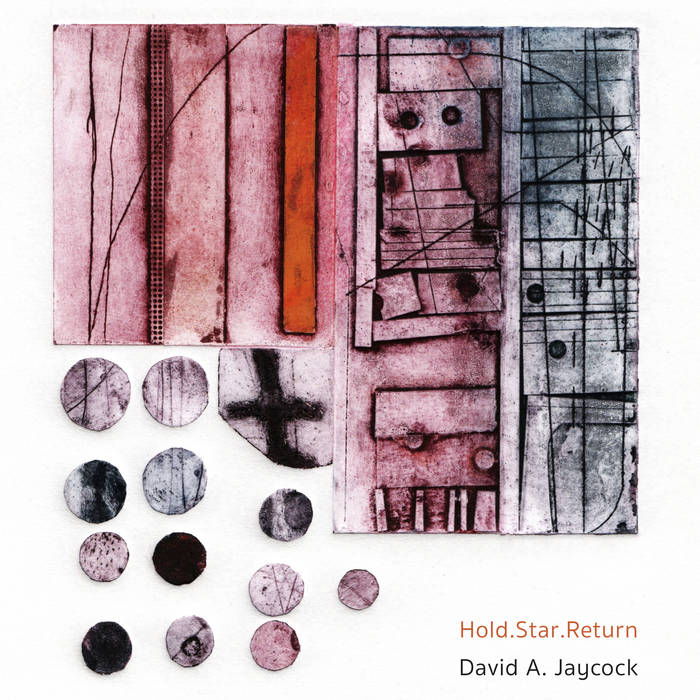The Breakdown
Let’s get this straight from the start, to quote Kevin Rowland – whatever musical hat he’s wearing, David Jaycock writes fantastic songs and tunes. In the guise he’s adopted for his latest album Hold. Star. Return, he’s buried himself in analogue synths to make a delightful record of 80s flecked synthpop.
Taking influences from across the spectrum, he‘s delivered a record of beauty and nostalgia, while always sounding current. It’s all swathed in tape loops, an arsenal of synthesisers and guitar effects (you wouldn’t guess that but upon talking to him the other day he revealed it), and drum machines. He’s helped along the journey by long time musical sparring partner James Yorkston, who contributes both musical in the form of dulcimer and backing vocals, and practically – the record came out on his micro-label CRAWS (Cellardyke Recording And Wassailing Society).
The apparent influences are played out through the album, from the sheffield sound of the Human League / Heaven 17 like Bird Food, dripping – as so many of the songs are, in layered threads of melodic lines with chords that bleed into them, and this melancholy that makes even the most upbeat songs have just a little bit of heartbreak about them. Elsewhere, there’s the bubbling Coming Up In Paris, with its Movement era New Orderisms – there’s something of the Barney about Jaycocks vocals throughout, and early Depeche Mode of Space Bar Hold Return, both of which have these instantly loveable melodies that mark them out as album highlights.
There’s also nods to the likes of Gary Numan in Ashtray chair and Kraftwerk in Blanket. Make no mistake though, this is no mere pastiche, Jaycock mixes things up, drawing sounds and influences across the song divides and keeps things current as well – it’s unlikely a song like All Blood And Glass would have fitted anywhere in the 80s, with its shards of electronic hue spoken word leading the listener down a more ambient, experimental path, nor the rather lovely and musically descriptive Torpoint Ferry, with its chugging synth engine, and this sprawling scattered percussion.
Best of all though is album opener White Tea From The Vending Machine, where his melodies and the the juxtaposition of his lyrics is at its most affecting, and he wraps it up in this lovely radiophonic workshop like sounds, which takes you back to the hall at school listening, either dancing or acting, or listening to BBC schools programming.
Lyrically, Jaycock mixes things up between the kitchen sink tales and these oblique lyrics, which touch on the times past of which his tunes speak – living in a Hillman Avenger, to relationship and family breakdowns to words and phrases which conjure up memories – “Music that reminds me of walking to school in the snow in the late 1980s,” as Jaycock himself says.
Give its beauty as a whole as an album, I would urge you all to pull on your furlined Parkers and wellies, and stroll between the prefab houses with David Jaycock.














No Comment